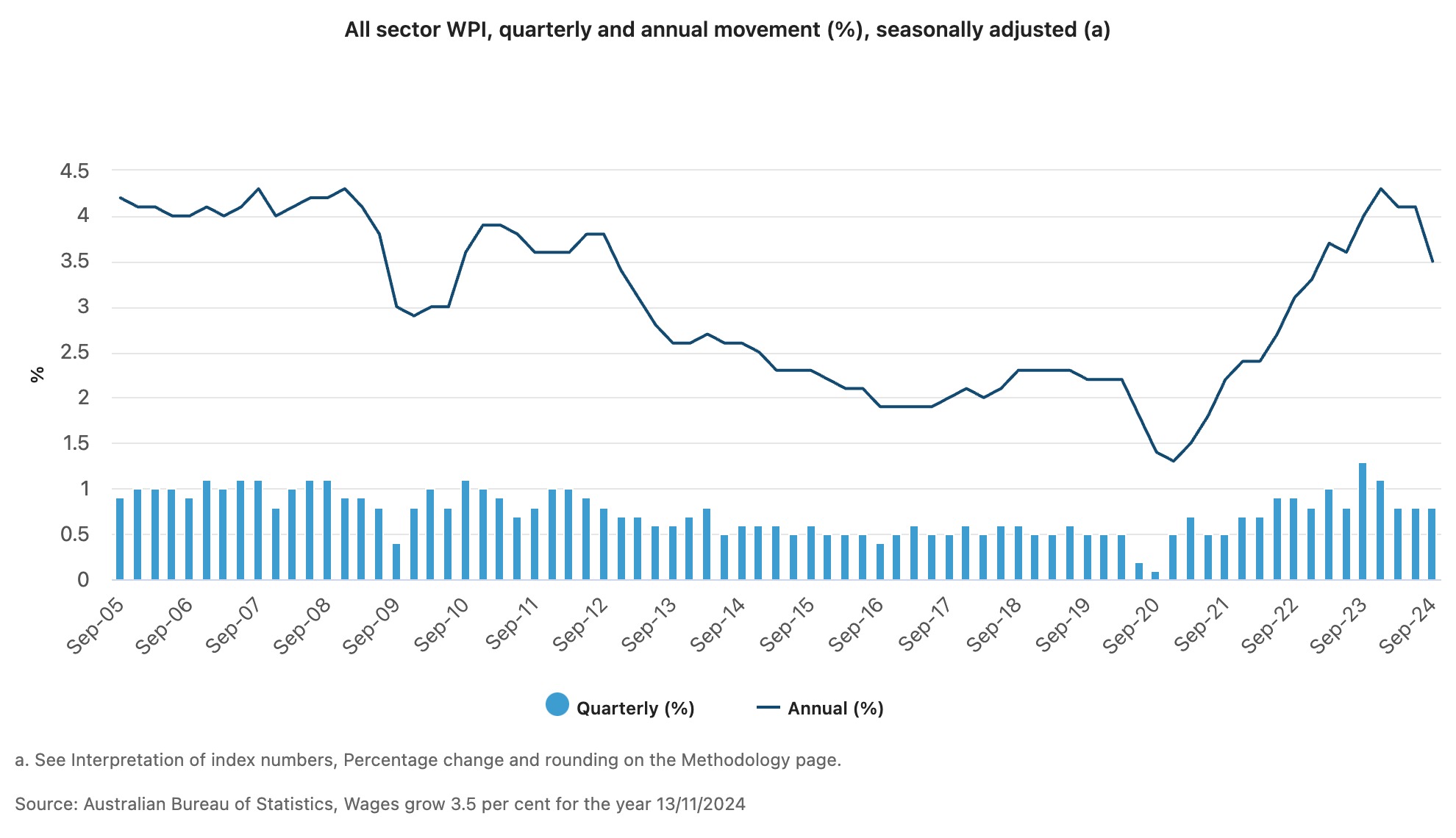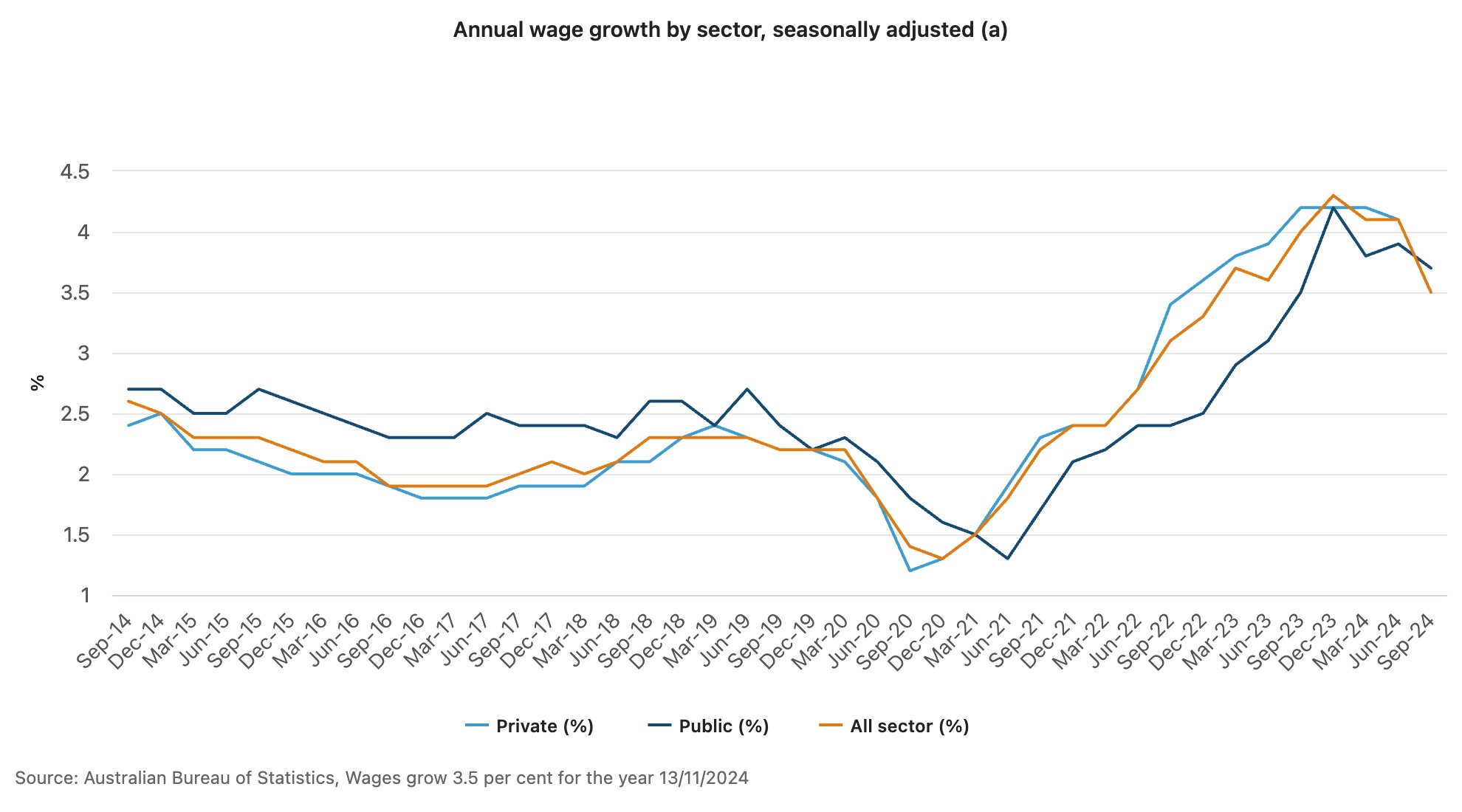
Employers say this demonstrates 'clear and welcome slowing in wages growth'

Australia's wage growth has slowed to 3.5% over the past year, according to the latest data from the Australian Bureau of Statistics (ABS).
The Wage Price Index (WPI) rose by 0.8% in the September quarter, marking a significant shift from previous periods of higher wage increases.
"September annual wage growth was 3.5%, falling below four per cent for the first time since June quarter 2023," said Michelle Marquardt, ABS head of prices statistics, in a statement.

The WPI data further revealed that 45% of jobs in Australia had a wage change in the September quarter, with the average hourly wage change lower (3.7%) than the same period last year (5.4%).
"Wage rises for many jobs can be directly or indirectly linked to the outcomes of the Fair Work Commission Annual Wage Review decision," Marquardt said.
"The latest decision of a 3.75% wage increase paid from 1 July 2024 was lower than the September quarter 2023 increase of 5.75%. It was also lower than the Commission's September quarter 2022 awarded increase of between 4.6% and 5.2%."
Meanwhile, the annual wage growth in the public sector hit 3.7% and was higher than the private sector's 3.5% for the first time since the December quarter of 2020.
"Annual growth in the private sector was 3.5% in the September quarter 2024. This is the lowest private sector annual growth since the September quarter 2022," Marquardt said.

National employer association the Ai Group said the latest wage price data shows that pressures on inflation and businesses are beginning to ease in Australia.
"Annual wages growth of 3.5% per annum in the September quarter, which demonstrates a clear and welcome slowing in wages growth, is a positive outcome," said Innes Willox, chief executive of Ai Group, in a statement.
"It will lower employment cost growth for businesses continuing to struggle with weak economic conditions, and take some of the heat out of pressures on underlying inflation."
But Willox said the government needs to "get their house in order" as higher public sector wage outcomes only add "unnecessary fuel to the lingering inflationary fire."
"Moderation in wages outcomes among government, unions and business will help reduce the inflation pressure which is bedevilling business and consumers," Willox said.